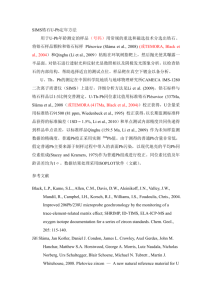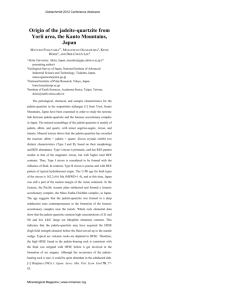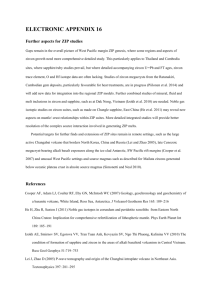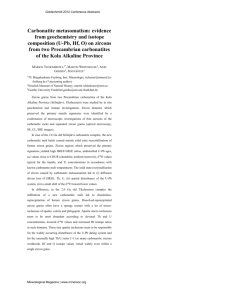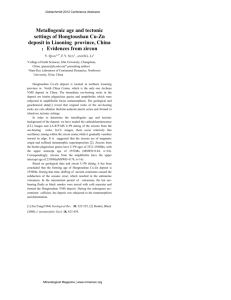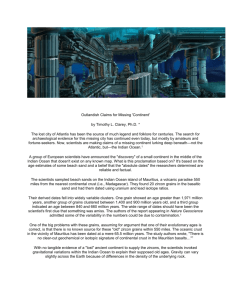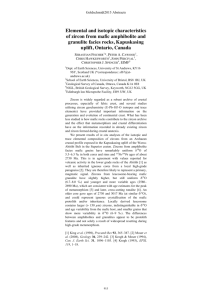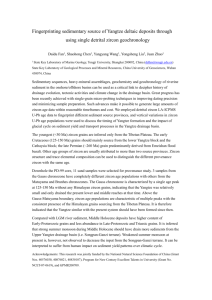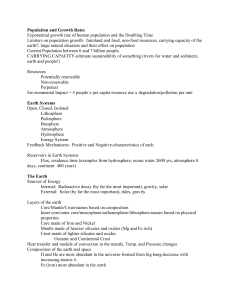An Iceland-like Setting for Generation of Earth`s Earliest
advertisement
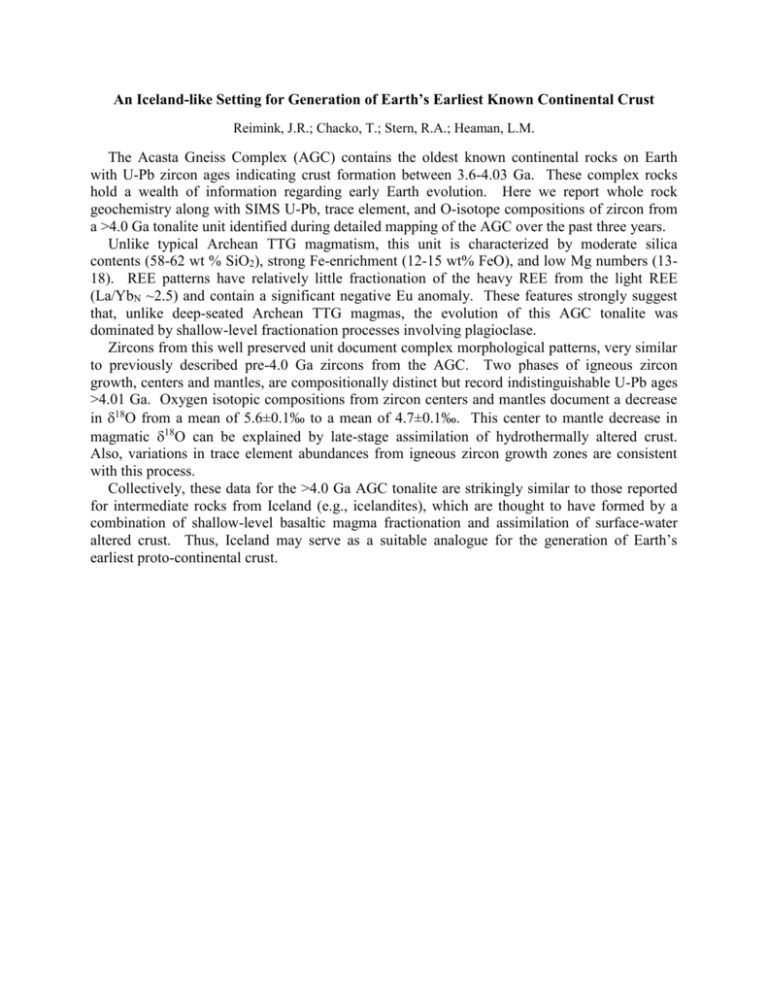
An Iceland-like Setting for Generation of Earth’s Earliest Known Continental Crust Reimink, J.R.; Chacko, T.; Stern, R.A.; Heaman, L.M. The Acasta Gneiss Complex (AGC) contains the oldest known continental rocks on Earth with U-Pb zircon ages indicating crust formation between 3.6-4.03 Ga. These complex rocks hold a wealth of information regarding early Earth evolution. Here we report whole rock geochemistry along with SIMS U-Pb, trace element, and O-isotope compositions of zircon from a >4.0 Ga tonalite unit identified during detailed mapping of the AGC over the past three years. Unlike typical Archean TTG magmatism, this unit is characterized by moderate silica contents (58-62 wt % SiO2), strong Fe-enrichment (12-15 wt% FeO), and low Mg numbers (1318). REE patterns have relatively little fractionation of the heavy REE from the light REE (La/YbN ~2.5) and contain a significant negative Eu anomaly. These features strongly suggest that, unlike deep-seated Archean TTG magmas, the evolution of this AGC tonalite was dominated by shallow-level fractionation processes involving plagioclase. Zircons from this well preserved unit document complex morphological patterns, very similar to previously described pre-4.0 Ga zircons from the AGC. Two phases of igneous zircon growth, centers and mantles, are compositionally distinct but record indistinguishable U-Pb ages >4.01 Ga. Oxygen isotopic compositions from zircon centers and mantles document a decrease in 18O from a mean of 5.6±0.1‰ to a mean of 4.7±0.1‰. This center to mantle decrease in magmatic 18O can be explained by late-stage assimilation of hydrothermally altered crust. Also, variations in trace element abundances from igneous zircon growth zones are consistent with this process. Collectively, these data for the >4.0 Ga AGC tonalite are strikingly similar to those reported for intermediate rocks from Iceland (e.g., icelandites), which are thought to have formed by a combination of shallow-level basaltic magma fractionation and assimilation of surface-water altered crust. Thus, Iceland may serve as a suitable analogue for the generation of Earth’s earliest proto-continental crust.
